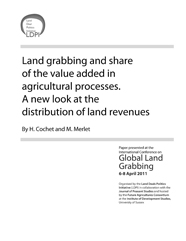- Accaparement des terres
-
Politiques foncières
- Refonder la politique foncière agricole de la France
- Politiques foncières et histoire agraire en Europe
- Les politiques foncières agricoles de la France au XXe siècle
- Le foncier en Afrique de l’Ouest. Fiches pédagogiques.
- Réformes Agraires dans le Monde
- Expérience du Code Rural au Niger
- Politiques foncières et Réforme Agraire. Cahier de Propositions.
- Forêts
- Eau
- Gouvernance des territoires
- FMAT - Forum Mondial sur l’Accès à la Terre 2016
- Autres Conférences et Forums internationaux
- Conférences filmées - Réunions Thématiques AGTER
- Entretiens avec des membres d’AGTER
- Formation - Enseignement
- Formation - Voyages d’étude
- Formation - Modules courts
- Editoriaux - Bulletin d’information d’AGTER
- Préserver l’environnement et les grands équilibres écologiques
- Développer la participation des peuples à la prise de décision aux niveaux national et local
- Respecter les droits humains fondamentaux. Lutter contre les inégalités
- Mettre en place une gouvernance mondiale efficace. Construire la paix
- Assurer l’efficience de la production agricole. En finir avec la faim
- Valoriser et entretenir la diversité culturelle
- Prendre en compte les besoins des générations futures. Gérer les « communs »
Recherche dans les titres, sous-titres, auteurs sur www.agter.org et sur www.agter.asso.fr
Recherche en plein texte sur www.agter.org avec Google
Rechercher dans le moteur Scrutari de la Coredem (multi-sites)
Version française de cette page : Accaparement des terres agricoles et répartition de la valeur ajoutée: la captation de la rente foncière revisitée
Land grabbing and share of the value added in agricultural processes. A new look at the distribution of land revenues
A Paper presented at the International Conference Global Land Grabbing (Brighton 6-8 April 2011)
Rédigé par : Hubert Cochet, Michel Merlet
Date de rédaction :
Organismes : Association pour contribuer à l’Amélioration de la Gouvernance de la Terre, de l’Eau et des Ressources naturelles (AGTER), AgroParisTech
Type de document : Article scientifique
Documents sources
Cochet,Hubert; Merlet, Michel. Land grabbing and share of the value added in agricultural processes. A new look at the distribution of land revenues. International Conference Global Land Grabbing (Brighton April 2011)
Résumé
Abstract
This article discusses one aspect of the land grabbing phenomenon that has been little addressed in the past: the economic dimension. The supposed economic efficiency of large-scale land investments is yet to be challenged.
During the second half of the 20th century, small-scale family based production systems became the rule on all continents in detriment of large-scale production. However, nowadays, we can witness the rapid development of new institutionalized forms of agricultural production (e.g. contract farming, agribusiness) that are characterized by an increased separation between capital and labour.
Based on a review of case studies from Eastern Europe and Latin America, the authors show that the above mentioned developments are leading to a growing gap between return on capital and remuneration for labour. Labour compensation is often well below labour productivity levels. Moreover, capitalist investors manage to negotiate very cheap access to land (whether sale or rent based) and there are currently no land taxes in place to compensate for this situation. Therefore, most of the value added goes to pay return on capital, disregarding both compensation for fair labour and the land rights holders (whether individual or collective).
Key words: land grabbing, capital, value added, labour compensation.

AGTER took part in the International Conference Global Land Grabbing (Brighton 6-8 April 2011), organized by the Land Deal Politics Initiative (LDPI), the Journal of Peasant Studies et the Future Agricultures Consortium of the Institute of Development Studies (IDS, Sussex University).
Hubert Cochet (Professor, AgroParisTech [Paris Institute of Technology for Food and Environmental Sciences] and Chairman of AGTER) and Michel Merlet (Director of AGTER) presented a paper which explore the economic dimension of land grabbing, based on two in-depth case studies in Ukraine and Ecuador.
The paper can be downloaded on this page or on the Conference website (www.future-agricultures.org/).
Télécharger le document
-
cochet_merlet_2011_brighton_en.pdf (190 Kio)


 Agter participe à la Coredem
Agter participe à la Coredem